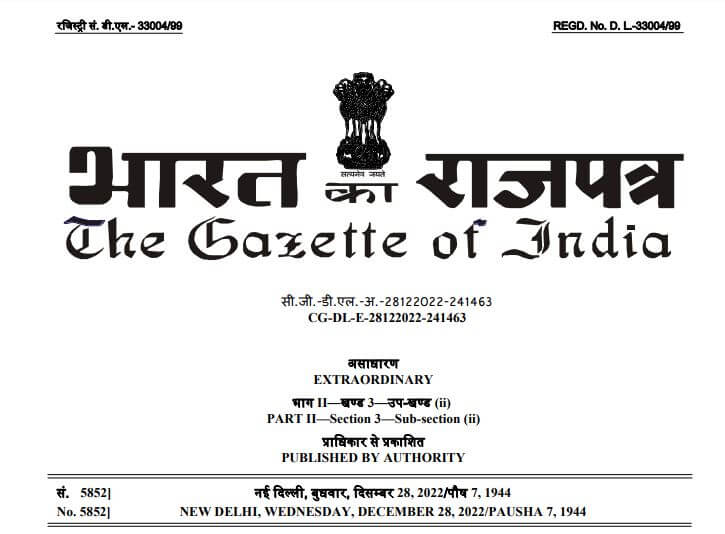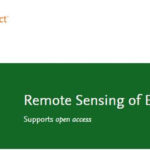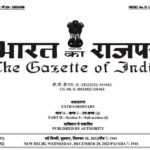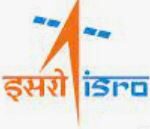What is the Geospatial Bill of India
- Preamble
1.1. Geospatial technology has applications in almost every domain of the economy ranging from agriculture to industries, development of urban or rural infrastructure, administration of land, economic activities of banking and finance, resources, mining, water, disaster management, social planning, delivery services, etc. Geospatial data is now widely accepted as a critical national infrastructure and information resource with proven societal, economic and environmental value that enables government systems and services, and sustainable national development initiatives, to be integrated using ‘location’ as a common and underpinning reference frame.

1.2. The National Geospatial Policy, 2022 (the Policy) is a citizen-centric policy that seeks to strengthen the Geospatial sector to support national development, economic prosperity and a thriving information economy. The Policy builds on conducive environment generated by the “Guidelines for acquiring and producing Geospatial Data and Geospatial Data Services including Maps” dated 15.02.2021 (the Guidelines), issued by Department of Science and Technology (DST), Government of India (GoI). While the Guidelines deregulated the Geospatial sector by liberalizing Geospatial data acquisition/production/ access, the Policy takes it further by laying down an overarching framework for holistic development of the Geospatial ecosystem. It spells out the vision, goals for the Geospatial sector and outlines the strategies for achieving them. It seeks to develop Geospatial infrastructures, Geospatial skill and knowledge, standards, Geospatial businesses, promote innovation and strengthen the national and sub-national arrangements for generation and management of Geospatial information. The Geospatial data acquisition/production/access will continue to be governed by the Guidelines in its present form or as stipulated by DST from time to time with an aim to promote private sector participation through continued enhancements of Ease of Doing Business in the sector.
- Vision and Goals
2.1.1. To make India a World Leader in Global Geospatial space with the best in the class ecosystem for innovation.
2.1.2. To develop a coherent national framework in the country and leverage it to move towards digital economy and improve services to citizens.
2.1.3. To enable easy availability of valuable Geospatial data collected utilizing public funds, to businesses and general public.
2.1.4. To have a thriving Geospatial industry in the country involving private enterprise.
2.2. Following are the milestones in the journey towards realization of the aforesaid vision:
Year 2025
2.2.1. Put in place an enabling policy and legal framework that supports liberalization of Geospatial sector and democratization of data for enhanced commercialization with Value Added Services.
2.2.2. Improve availability of and access to better location data across organizations and sectors to enable innovations and encourage enterprise.
2.2.3. Establish and strengthen an integrative interface for all digital data having location dimension collected or developed utilizing public funds, for easy access, sharing, use and reuse.
2.2.4. Redefinition of National Geodetic Framework using modern positioning technologies and provision of online access.
2.2.5. High accuracy Geoid for the entire country.
2.2.6. Develop and strengthen national and sub-national arrangements in Geospatial information
management and related infrastructures with participation of government, industry, private sector, academia
and civil society.
Year 2030
2.2.7. High resolution topographical survey & mapping (5-10 cm for urban & rural areas and 50 cm-100 cm for forests & wastelands).
2.2.8. High accuracy Digital Elevation Model (DEM) for entire country (25 cm for plain, 1-3 metre for hilly and mountainous areas).
2.2.9. Develop a Geospatial Knowledge Infrastructure (GKI) underpinned by Integrated Data and Information Framework.
2.2.10. Enhance capabilities, skills and awareness to meet the future needs of the country.
Year 2035
2.2.11. High resolution/accuracy Bathymetric Geospatial Data of inland waters and sea surface
topography of shallow/deep seas – to support Blue Economy.
2.2.12. Survey and mapping of sub-surface infrastructure in major cities and towns.
2.2.13. National Digital Twin of major cities and towns.
- Strategy and Approach
3.1. The focus of the Policy is to make Geospatial technology and data as agents of transformation for achieving the Sustainable Development Goals (SDGs), bringing efficiency in all sectors of economy and instilling accountability and transparency at all levels of governance.
3.2. Atmanirbhar Bharat: The Policy recognizes the importance of locally available and locally relevant Maps and Geospatial Data in improved planning and management of resources and better serving the specific needs of the Indian population. The Policy aims to create an enabling ecosystem thereby providing a conducive environment to Indian Companies that will enable them to make India self-reliant in producing and using their own Geospatial data /information as also compete with foreign companies in the global space.
3.3. Integrated Geospatial Information Framework (IGIF): The Policy seeks to draw on international best practices, such those of United Nations Committee of Experts on Global Geospatial Information Management (UN-GGIM) including the IGIF, to strengthen national-level spatial information management arrangements across our country.
3.4. Data and Information & Communications Technology (ICT) Infrastructure: Building on the existing Data Holdings and ICT Infrastructure, the Policy will promote establishment of a Geospatial data infrastructure, which through well-defined custodianship model and data supply chain, will enable best practices in collection and management of Geospatial data/information and availability of quality, real /near-real time data/information that will be appropriate to ensure cross sector and multidisciplinary collaboration involving all stakeholders.
3.5. Innovation: The Policy will enable and support innovation, creation and incubation of ideas and start-up initiatives in the Geospatial sector that will enable leapfrogging from outdated regulations, technologies and processes, bridging the Geospatial digital divide and capitalizing on the opportunities arising out of continually evolving Technology.
3.6. Standards: The Policy will encourage open standards, open data and platforms. It will promote establishment and adoption of best practice standards and compliance mechanisms for enabling data and technology interoperability to deliver integrated Geospatial information and location-based knowledge creation.
3.7. Capacity Development: The Policy will encourage enduring capacity development and education programs so that the value and benefits of integrated Geospatial information management is sustained in the long term. It will also aim at the spread of Geospatial thinking and education to the young minds from school level onwards wherein there would be standardization and certification of courses and skill sets in line with the global best practices.
3.8. Ease of Doing Business: Continued liberalization in line with the Guidelines will be carried out and supported.
3.9. Democratization of Data: The Survey of India (SoI) topographic data and other Geospatial Data produced using public funds would be treated as common good and be made easily available.
- Institutional Framework
4.1. The Government shall constitute a Geospatial Data Promotion and Development Committee (GDPDC) at the national level which shall be the apex body for formulating and implementing appropriate guidelines, strategies and programs for promotion of activities related to Geospatial sector. GDPDC shall drive the overall development of the Geospatial ecosystem. GDPDC would replace and subsume the functions and powers of National Spatial Data Committee (NSDC) constituted through GoI Resolution dated 13.06.2006 and Geospatial Data Promotion and Development Committee constituted vide DST Office Memorandum dated 04.03.2021. The composition and functions of GDPDC are given at AnnexureI. DST, with the approval of Minister-in-charge, would be empowered to modify the composition and functions of GDPDC to make it more effective in tune with advancements in the Geospatial sector.
4.2. GDPDC will appropriately modify the concept and functioning of National Spatial Data Infrastructure (NSDI), constituted vide GoI Resolution dated 13.06.2006, in order to make the NSDI mechanism more robust, efficient and effective. The composition, powers and functions of existing NSDI Executive Committee constituted vide GoI Resolution dated 13.06.2006 will be realigned accordingly.
4.3. DST shall continue to be the nodal Department of the Government and GDPDC shall make suitable recommendations to DST in the discharge of its functions relating to the Geospatial regime. DST shall provide secretarial assistance to GDPDC. DST may constitute additional Sub-committee/s and/or Working Groups to aid and support GDPDC on specific issues. The Sub-committees/Working Groups may have appropriate representation from industry.
FAQs:
What is the Geospatial Bill of India?
It is a citizen-centric policy that seeks to strengthen the Geospatial sector to support national development, economic prosperity, and a thriving information economy.
What is The National Geospatial Policy, 2022?
The National Geospatial Policy, 2022 (the Policy) is a citizen-centric policy that seeks to strengthen the Geospatial sector to support national development, economic prosperity and a thriving information economy.
What is the guideline for acquiring and producing Geospatial data in India?
Guidelines for acquiring and producing Geospatial Data and Geospatial Data Services including Maps” dated 15.02.2021…..
Similar Articles:
- Geospatial Intelligence and Machine Learning Applications in the Air Force: An In-Depth Analysis
- Honorary Doctorate – ‘Dr’
- Remote Sensing of Environment
- Geospatial Bill of India 2022
- IIRS, ISRO: Engagement of Technician (Diploma Holders) & Graduate (Engg. / Tech.) Apprentices





